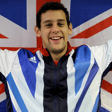Become a Creator today!Start creating today - Share your story with the world!
Start for free
00:00:00
00:00:01

Ep 15: Reasons to be cheerful with Stephen Davis
This week, we speak to Stephen Davis, Senior Fellow and Associate Director of Corporate Governance at Harvard Law School. He’s also one of the authors of What They Do With Your Money: How the Financial System Fails Us and How to Fix It.
In the book, he and his co-authors expose the harm caused by the misalignment of interests between financial institutions and investors, and what we can do to prevent the financial industry from profiting at our expense.
He shares his views on:
- the Wells Fargo scandal;
- the institutions he believes are leading the way on governance issues;
- the threat to the Fiduciary Rule in the US; and
- what consumers can do to encourage institutions to change for the better.
Transcript
Introduction and Guest Overview
00:00:05
Speaker
Hello and welcome to the latest Tebby podcast, brought to you by the evidence-based investor in conjunction with Regis Media, connecting advisors with clients. I'm Robin Powell and this is episode 15.
Alignment in Financial Systems: An Overview
00:00:19
Speaker
Our guest this week is Stephen Davis, Senior Fellow and Associate Director of Corporate Governance at Harvard Law School.
00:00:27
Speaker
Stephen has written for many years about the need for a better alignment of interests in the financial system. In other words, aligning the interests of companies with those of their customers and shareholders, investors and the general public. I've just caught up with Stephen on a visit to London and was encouraged to hear that he feels it really starting to see progress on corporate governance.
Case Study: Wells Fargo's Misconduct
00:00:51
Speaker
He gives as an example the recent shareholder revolt at Wells Fargo, the huge international banking and financial services holding company based in San Francisco. For the benefit of those who aren't familiar with events at Wells Fargo, I asked him to explain the background.
00:01:09
Speaker
Well, Wells Fargo, it turns out, for many years was essentially ripping off its customers by signing them up to accounts that they had not agreed to and charging them and then sort of presenting through disclosures to the SEC and others that Wells was growing large and it was gaining income, but essentially it was income that was
Institutional Investors and Governance Challenges
00:01:38
Speaker
was not approved by their customers.
00:01:43
Speaker
And what's also fascinating is that the board knew about this. It was in the press, the Los Angeles Times covered it, and still the board kept management in place. And worse than that, the institutional investors aided and abetted the board by not only approving the directors every year, but also allowing the chair and the CEO to remain held by one person.
00:02:13
Speaker
Sadly, it's a story that reflects very badly on governance in the UK financial sector. Why then is Stephen Davis encouraged by recent developments at Wells Fargo?
Shareholder Activism and Institutional Change
00:02:25
Speaker
Well, last month the company held its first annual meeting since the scandal broke and shareholders made it very clear to the board just how unhappy they were.
00:02:37
Speaker
So here's what's happened. There was an en masse vote against the directors. They didn't lose, but some of them came very, very close to losing a majority vote. This is not precisely unprecedented, but just about. And it shows that there's a sea change happening in
00:02:58
Speaker
the ways in which institutional investors show or exercise stewardship, which is a good thing. We're only at the beginning of this process. But it shows that there is a potential for greater alignment between our agents and the ultimate citizen investors.
00:03:18
Speaker
For Steven though, there are other reasons to be cheerful.
Promoting Good Governance: 'Fearless Girl' and Others
00:03:21
Speaker
He cites Blackrock, Vanguard and State Street as other examples of financial institutions that are leading the way on governance issues.
00:03:31
Speaker
If there was one moment when we look back on this era in the future that would show a tipping point, my guess would be that it would be something called the fearless girl. The fearless girl is a statue that State Street Global Advisors erected in the heart of Wall Street as a way of showing that State Street is now trying to get its portfolio company boards to have more women and more diversity generally.
00:04:00
Speaker
Now again, State Street like many other big institutions had rarely paid attention to these what we now term ESG risks or governance risks. Instead they tended to be very favorable to companies because it was in their own commercial interest to do so. Now they're beginning to realize that ultimately they need to be responsive to their citizen investors, the people that
00:04:25
Speaker
provide them capital and not the companies that they work with.
Ad Break: Regis Media Services
00:04:30
Speaker
And so Fearless Girl is now something that State Street considers part of its brand. So whenever you get an email from State Street, it has a picture of the Fearless Girl on it. And on that note, we're going to take a short break. Here's a message from our sponsor Regis Media.
00:04:51
Speaker
Hi, I'm Sam Willett, a producer here at Regis Media. Today, investors have more access to information than ever before, and the financial media is as distracting as ever. So these days, investors need help cutting through the financial noise. By educating your clients about the basics of investing, you can build an audience, raise brand awareness, and grow your business.
00:05:12
Speaker
At Regis Media we can help you get your message out there by producing great content such as video, animation, graphics, articles or podcasts. We can also show you how to use that content to get new clients on board. To find out more visit RegisMedia.com
00:05:30
Speaker
Welcome back to the Tebbe podcast from the Evidence-Based Investor. I've been talking to Stephen Davis, an expert on corporate governance at Harvard Law School.
Misalignment in Market Signals
00:05:40
Speaker
So I asked Stephen next, why is it so important that the misalignment of interests in the financial world are addressed?
00:05:49
Speaker
When institutional investors are misaligned with the interests of the capital providers, the tens of millions of people who depend on those institutions for their savings, it means, number one, that institutions in the past have been able to siphon through fees at excessive rates without even, in many cases,
00:06:12
Speaker
people knowing it. But the second thing that occurs in misalignment is institutions send the wrong signals to portfolio companies. Send signals, for instance, that it's okay to combine a chair and CEO so that the CEO does not have a boss. It's okay to overpay. And it's okay to cut research and development and to think short term.
00:06:40
Speaker
Those are bad signals for the health of our marketplace and our businesses and ultimately job growth. So what we're seeing is the beginning of a change in this whole area where institutions are beginning to see
00:06:57
Speaker
that when they think about environmental and social and governance risk as owners of portfolio companies, it's about long-term value, and it's about the interests of ultimate citizen investors who provide their capital.
Regulatory Changes and Their Impact
00:07:13
Speaker
Several measures were introduced under President Obama to protect the interests of investors, notably of course the Department of Labor's fiduciary rule. There's been some concern that the Trump administration may want to push back on some of those changes, but that's not something that particularly worries Stephen Davis.
00:07:34
Speaker
The point is that there is a business case now for fiduciary duty. There's a business case for shareholder rights because that was another Obama-era development in the wake of the financial crisis. Just as it was with the shareholder rights directive in Europe, there was an effort to give shareholders more power. The fact is, you don't need that in law anymore, at least in the US. The shareholders have already taken up
00:08:01
Speaker
their rights and their responsibilities, and now they're embedding it in their daily practice.
Exploring Financial Sector Practices Through Literature
00:08:09
Speaker
So to Stephen's latest book published last year. It's called What They Do With Your Money and he co-authored it with David Pitt Watson and John Lukomnik. What did the book set out to do? So what we did in this book, What They Do With Your Money, is to try to get from an insider perspective how it is that the financial sector, what tools does the financial sector use to enhance its own
00:08:40
Speaker
business and often at the expense of the little guy, the mom and pop that are trying to save for their retirement. Because what we show is that when you don't have a system such as we use in this country, in the UK and in the US with lots of intermediaries, but instead a simple system such as occurs in the Netherlands,
00:09:04
Speaker
A saver in the Netherlands can finish their working life with as much as 50% more in their nest egg as compared to a similar saver in the UK or the US. Again, Stephen is hopeful that financial services in general and asset management in particular are changing for the better.
Empowering Consumers: Tools for Better Choices
00:09:28
Speaker
But he still feels that consumers ought to be doing more to encourage institutions to change their ways. There is, for example, a consumer app called Bycott, which helps consumers figure out what they should buy depending on what interests them in the world. If you could imagine a similar social media set of tools to scrutinize,
00:09:56
Speaker
investing institutions so that people could figure out which are the institutions working in my interest, which ones are not. And if I have the right to do it, I can try to move my money into institutions that work for me.
Conclusion and Call for Engagement
00:10:11
Speaker
You've been listening to Stephen Davis from Harvard Law School. And that's about it for this week. Thank you to our sponsor Regius Media. If you're a financial advisor and you want to find out more about Regius Media, visit the website regiusmedia.com. Finally, a request. If you've enjoyed this podcast, please subscribe on iTunes or on SoundCloud.
00:10:37
Speaker
For that matter, why not write a review on iTunes? It'll only take a few moments, and you really will be helping us to educate the end investor. Until next time, from me, Robin Powell, and our producer, Kent Lau, goodbye.
















